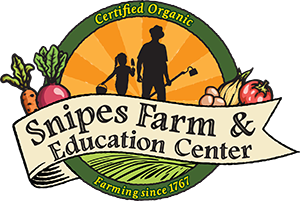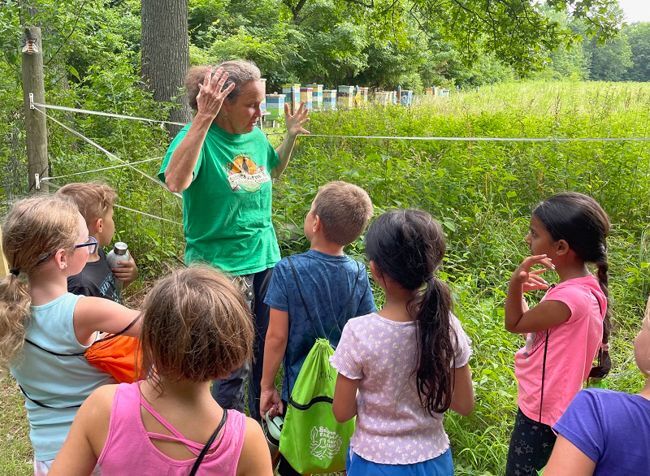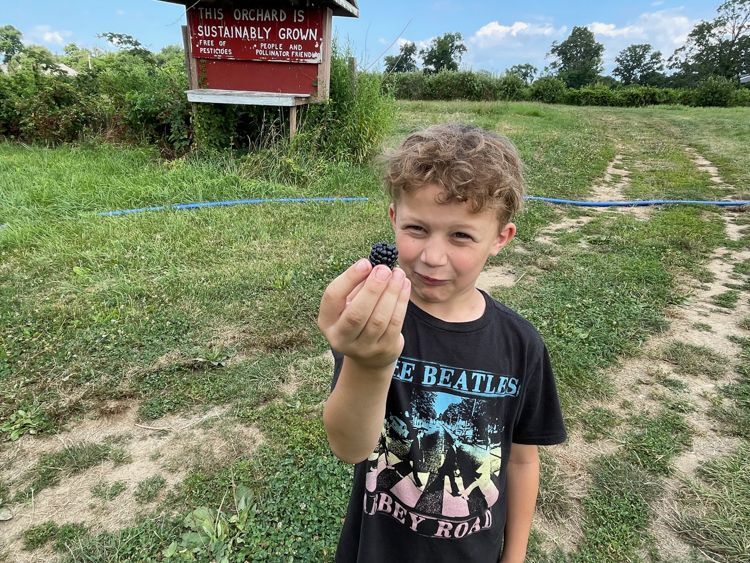
A Day in the Life of a Rutabaga - Snipes Farm Campers Learn How Bees Make Honey and More
Snipes Farm in Lower Bucks County Teaches Children about Organic Farming and the Wonders of Nature
Morrisville, PA
July 2022
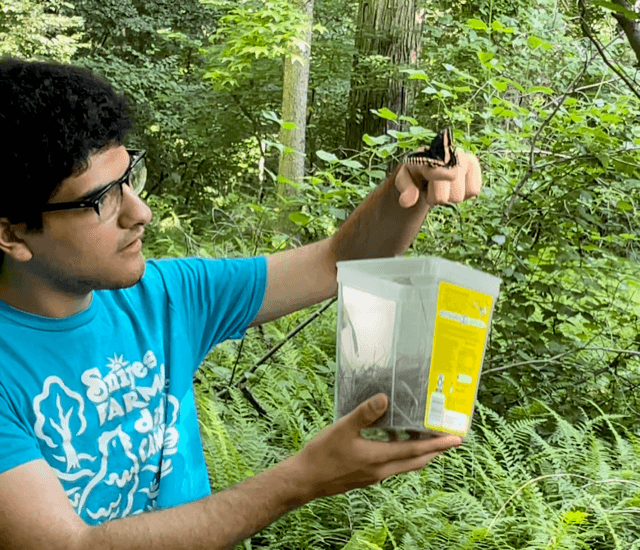
“Mr. Will, you can’t touch the wings of it. Don’t touch the wings!”
A chorus of children cautions their counselor Will as he prepares to free a black and yellow butterfly. The butterfly recently emerged from a chrysalis in a remarkable process called a metamorphosis.
Will and his young charges, a group of 7-to-9-year-old campers called the “Rutabagas,” are gathered near the entrance to the Snipes Farm and Education Center Nature Trail in Morrisville, PA.
Will removes the lid from the container holding the butterfly, but it does not leave. He whispers words of encouragement, but the butterfly refuses his offer of freedom. Then Will carefully inserts his left index finger into the jar, and the butterfly climbs aboard. Next, he slowly pulls his
finger out until the butterfly emerges – and flies off into the deep green woods.
“I see it. I see it,” the children exclaim as the butterfly flies up and away. “It’s on a tree.”
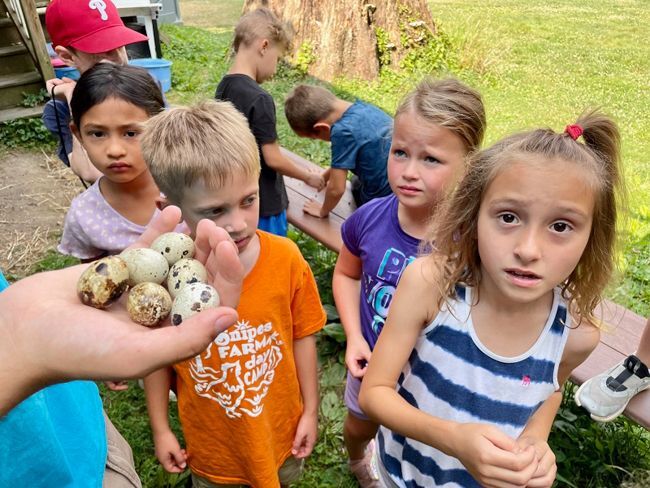
Now, if you have never seen a chrysalis or don’t know why you should never touch the wing of a butterfly, you clearly have not spent time at the Snipes Farm and Education Center summer camps in Morrisville, PA.
There you will find not only the Rutabagas, but also the Green Beans, Sweet Potatoes and Zucchinis.
No, they are not edible vegetables. At least not in this case. They are children in different age groupings attending the camp.
On this particular day, the Rutabagas, help free a butterfly, hold speckled quail eggs in their hands, feed the goats—and learn how honeybees, the great pollinators, make honey.
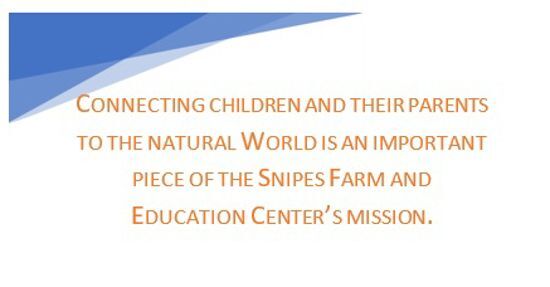
And Then the Bee...
Camp Director Melanie Douty-Snipes joins the children later in the morning out in the orchard. She carries a collection of oversize photos under her arm, depicting beehives and beekeepers.
“We’re going to take a moment to learn about one of the most amazing insects in the world,” she tells the children, who sit in a circle on rustic benches. What is it?
“Bees,” shouts a young boy.
And so, the lesson begins. Honeybees don’t just make honey, and they certainly don’t make it haphazardly. The beehive is a marvel of efficiency and cooperation.
“They are just like us. They all have a job to do just like you do at home,” Melanie explains. Following the lesson, she leads the Rutabagas to the edge of a field containing scores of beehives housed in colorful wooden boxes that are tended by Morrisville beekeepers Michael and Suzanne Luciano.
A single hive might have 50,000 bees. Snipes Farm is home to hundreds of thousands if not millions of bees. The campers can hear a rising hum as they approach the hives.
The Queen bee lays the eggs (about 1,000 a day, think of that!) after spending time with the drones. The great majority of bees are workers. They perform many tasks.
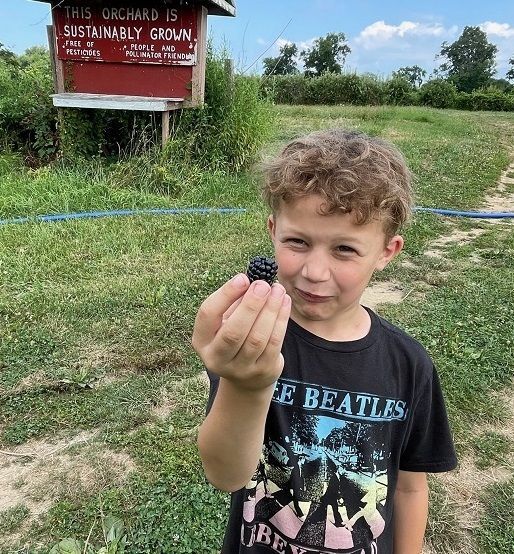
The attendants care for the queen, while others feed the brood. Some bees produce a waxy substance that others use to build the hexagonal cells in the honeycomb. Still others remove debris, clean the cells, handle incoming nectar, guard the entrance, and forage for nectar in the fields.
Young adults beat their wings at a ridiculously high speed (200 beats or more per second) to air-condition the hive and evaporate the collected nectar, turning it into honey.
Of Bees & Blackberries
And, perhaps most importantly of all for humans, bees pollinate plants when they buzz from one flower to another collecting nectar. Without bees, we would have little food to eat.
“Three out of every four bites of food you eat is thanks to the bees that pollinated something,” Melanie tells the Rutabagas.
Such as a sweet, ripe blackberry, perhaps?
Indeed!
The next stop on this day in the life of a Rutabaga takes place a short walk from the beehives between two gigantic rows of ancient blackberry bushes. They run a football field in length.
Melanie and the Rutabaga counselors let the children pick and eat a few berries from the ripening bushes towering above their heads.
They reach up eagerly for the plump black ones.
Lesson learned. Bees are good. Not only do they make honey, but they also pollinate plants that produce the fruits and vegetables that we and many animals eat.
Without the honeybee, there would be no blackberry.
